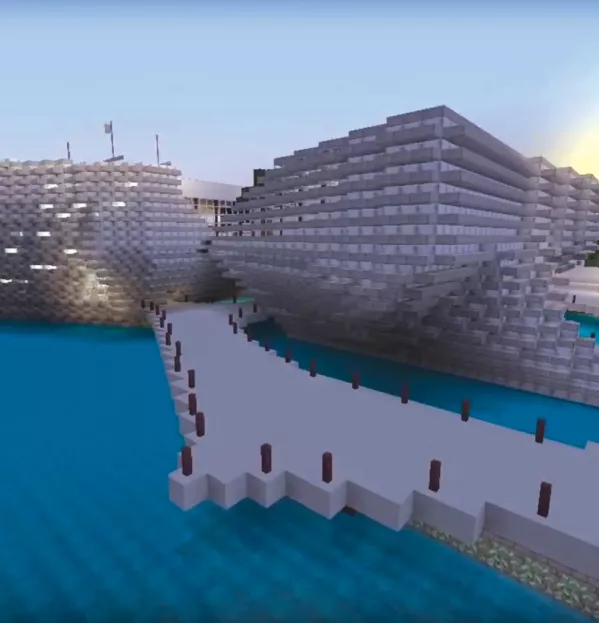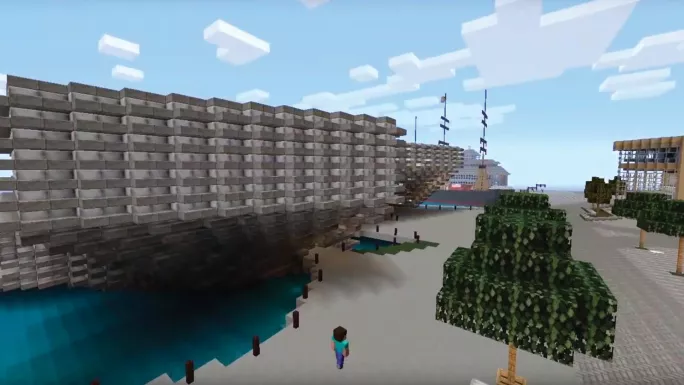This isn’t game over for the Minecraft dream

Twitter can be an amazing place to share ideas, resources and perspectives, and it was through TESS columnist Tom Bennett sharing one particular song’s extended version a while back that I came to love it even more.
As I listened to the 12-inch version of Freiheit’s Keeping the Dream Alive during festive reveries - it featured prominently in my Christmas Spotify playlist - these lyrics really struck me:
The hopes we had were much too high;
Way out of reach, but we have to try.
The game will never be over,
Because we’re keeping the dream alive.
In view of the recent storm surrounding Tom’s critical observations of what he describes as the “gimmicky” use of games - in particular Minecraft - in schools (“Minecraft is an education gimmick with no hard evidence to prove that it helps learning”), I thought that this was most apposite. So let me channel the spirit of Freiheit: is it wrong to have dreams in education, to have high hopes for ourselves as teachers and for learners? Aren’t there those of us in education who also add rigour and realism to the dreams we have of better outcomes for our learners? Can’t we be trusted to make appropriate professional judgements about new ideas we may want to explore, without the need for an established research base to affirm and validate it? Is it really, as Tom says, game over for the debate or can we keep the Minecraft dream alive?
‘A rich learning culture’
A few years back I talked at a number of international events and conferences about the game-based learning initiatives that I was leading in Scotland. We had partnered a large number of schools in the use of commercial off-the-shelf (Cots) games such as Guitar Hero, Mario Kart and Professor Layton. We wanted to position Cots games as a “contextual hub” around which a skilled teacher would appropriately craft and structure the learning. To inform this methodology we established a rationale that was embedded in theoretical perspectives such as Gee’s semiotic domains and situated learning, Csikszentmihalyi’s idea of flow and Shulman’s signature pedagogies.
At these conferences I would always be asked, “Do you think Nintendo will ever make an educational game?” My response was that it already did. But we educators were so set in a dynamic that positioned us as the dominant partner in the learning relationship that we looked on learners’ digital interests as frivolous, as Tom himself stated.
I feel the same is true for Minecraft. Learners of all abilities have owned this domain for years now and have been building the Taj Mahal, Minas Tirith and Hogwarts in astounding detail.
The low-floor and high-ceiling levels of complexity in this supposedly trivial game are quite extraordinary, but the associated learning culture that seems to have grown from Minecraft is what interests me most.
The learning culture that seems to have grown from Minecraft is what interests me most
We are seeing primary-aged children utilising the web to connect and learn with and from their peers, hosting their own servers, learning how to mod and to programme redstone (a fictional mineral in Minecraft, which acts as electrical wire). They are using video capture cards to create tutorials and are managing their own YouTube channels. This rich learning culture that has grown over the past few years, independent from the guidance of the teacher, is what we should really be focusing on.
The recent colonisation of the Minecraft domain by the well-meaning, ed-tech adult and “edupreneur” consultant is, in my view, changing the nature of the game.
There are some really interesting uses of Minecraft out there, such as our recent “Minecraft: On the Waterfront” project (see “Use Minecraft to build it and the students will come”), the BBC Build It Scotland initiative and the MindRising project in Ireland. But I do think Tom has a point about gimmicky approaches.
For example, there’s the Minecraft Education download featuring a 1940s London street that asks learners to build an air-raid shelter, or the 100 number square download that would have learners fly to the answer of 6x8.
For me, these show how we can’t help but culturally appropriate such learner-owned digital spaces in our hardwired desire to reframe and assimilate them into established expectations of learning. I do sometimes wonder if Minecraft, brilliant as it is, will ever fit the paradigm of learning in school.

Skilled use of games
Tom asks for the research supporting the use of games such as Minecraft in schools. Surely he will acknowledge that educational research is slow in nature. When you consider the pace of change in technology, and how resources can rapidly come into and out of vogue, there might not be a research base specifically to validate and affirm your use of games such as Pokémon Go or Minecraft.
What teachers will do, however, is establish a theoretical frame that helps to inform skilled and appropriate use of a game.
Tom also asks for the research evidence for those brain-training games that “were all the rage a few years back and were meant to keep your brain healthy or something”.
I would ask that he reads two papers by me and David Miller, of the University of Dundee, about our interventions with Dr Kawashima’s Brain Training, published in the British Journal of Educational Technology.
The second relates a randomised control trial done in an effort to explore scalability. This focused on schools in areas of multiple deprivation because we, like Tom, want to do what we can to contribute to better outcomes for all children.
I don’t think that the hopes that the education community has for the use of games like Minecraft are too high. Maybe the most effective practice is out of reach for many at this time, but we have to try to get there and I’m sure many teachers will.
Game over? I don’t think it is. To paraphrase Freiheit, the game can never be over because there are far too many teachers out there keeping alive their informed dreams for the use of digital tools such as Minecraft.
Derek Robertson is a University of Dundee education lecturer and an expert in computer game-based learning
You need a Tes subscription to read this article
Subscribe now to read this article and get other subscriber-only content:
- Unlimited access to all Tes magazine content
- Exclusive subscriber-only stories
- Award-winning email newsletters
Already a subscriber? Log in
You need a subscription to read this article
Subscribe now to read this article and get other subscriber-only content, including:
- Unlimited access to all Tes magazine content
- Exclusive subscriber-only stories
- Award-winning email newsletters